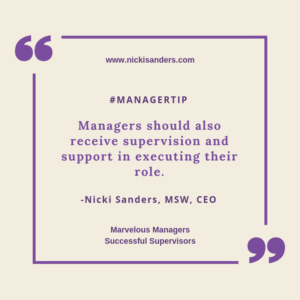When You’re Truly Good at Your Job, You Want to Hear the Ways You Suck at It
One of the most underrated ways to measure your professional success
About six months ago, I quit a job I was very good at. I was a staff writer at a digital publication, and was in line for a promotion. Lots of people told me that leaving was a bad idea. Mostly, I agreed with them. But I had an itch I needed to scratch, and frankly, I was bored. I left my job, and after a ton of hustling, ended up working for an early-stage venture capital fund based in San Francisco.
It turns out venture capital is not easy. And it was a rude awakening to realize that I was not particularly good at it — at least, not yet.
Part of it was learning a new culture. My advisor is a techy, Patagonia-loving, white man, and I’m a feminist Brooklynite who spends much of her time critiquing white men in Patagonia vests. Unlike journalism, where I saw success writing about my opinions and experiences, in VC, my opinions are often viewed as invalid, or unsubstantiated. When I filed investment reports that I thought were great, I’d get a “meh” in response.
He’s just not listening to me, I’d think. His loss.
I knew, of course, that this was not the most mature response. But what was wrong with it, exactly? And why is it such a common reaction? It turns out, there are several theories of why those who are the worst at their job are often so resistant to feedback — while those who truly excel tend to welcome criticism.
Carol Dweck, a Stanford psychologist well-known for her research on “growth mindsets,” has looked at the distinction between being driven by proving your performance, as opposed to being driven by learning opportunities. When our personal integrity is threatened — as it is when we’re insecure — initially, most of us deny and evade. But as we improve our skills and self-awareness over time, we learn to reframe “failures” as learning opportunities.
Wharton organizational psychologist Adam Grant puts it another way. He says an openness to — and even welcoming of — criticism demonstrates an evolution of motivation. “If your goal is to prove yourself, you’re afraid to be criticized,” Grant told me. “But if you’re striving to improve yourself, you know you need criticism to get better.”
Another culprit is our ever-present desire to be liked and praised, explain Douglas Stone and Sheila Heen, Harvard Law lecturers and the co-authors of books on difficult conversations and receiving feedback.
“There’s a tension between wanting to be liked as we are, and wanting to get better,” Stone told me. “So maybe that’s the key: When I am happy with how I am, I’m less worried what others think, so I’m more concerned with the getting better part. When I’m not happy with how I am, I’m eager to hear that I’m okay as I am.”
At Bridgewater, the psychology-obsessed hedge fund (where I once worked), my defensiveness about the feedback would have been labeled a “lower-level reaction.” Bridgewater founder Ray Dalio’s foundational philosophy, summarized as “Pain + Reflection = Progress,” suggests that we must work through our defensive amygdala responses (that “fight or flight” feeling) before we can make true progress in any work.
Whatever the reason for my initial defensiveness, I’ve tried to follow Dalio’s advice to get through my fight-or-flight response. The learning curve has indeed been painful: I reflect, get annoyed, then reflect some more. I’ve asked a lot of questions, and I’ve forced myself to really listen to the feedback. What’s the worst that could happen? I ask myself again and again.
With time, I got better. It wasn’t a Cinderella story, and I’m still not top-tier. As someone who spent hours in my professor’s office if I got an A-minus, reckoning with my lack of instant success is taxing, embarrassing as that sounds.
Some time into this experiment, I nervously filed a report representing all the analysis I’d done since starting at the fund. “It’s pretty good,” my advisor told me.
In the past, “pretty good” followed by an explanation of what could have been better would have triggered internal rage, tears, and teeth grinding. This time, much to my own surprise, “pretty good” brought a smile to my face — and a new sensation: I was excited to hear his criticism.
The truth is, I’m still mediocre-to-crappy at certain elements of VC analysis. But my advisor’s willingness to point that out is a mark of respect. If he didn’t think me capable of progress, he wouldn’t waste time telling me how I could be better.
As we become more confident about our capabilities, we have a clearer sense of where we are on the learning curve, Heen explains. With the ability to truly see where we stand, we can suddenly see and appreciate how far we’ve come.
That shows us — with a shiver of joyful anticipation — how far we still have to go.
Article originally appeared on Forge.
